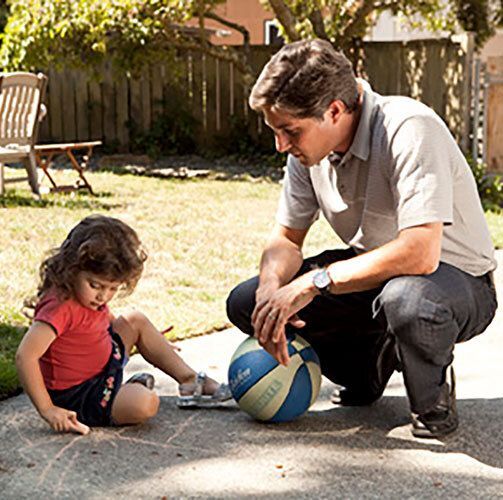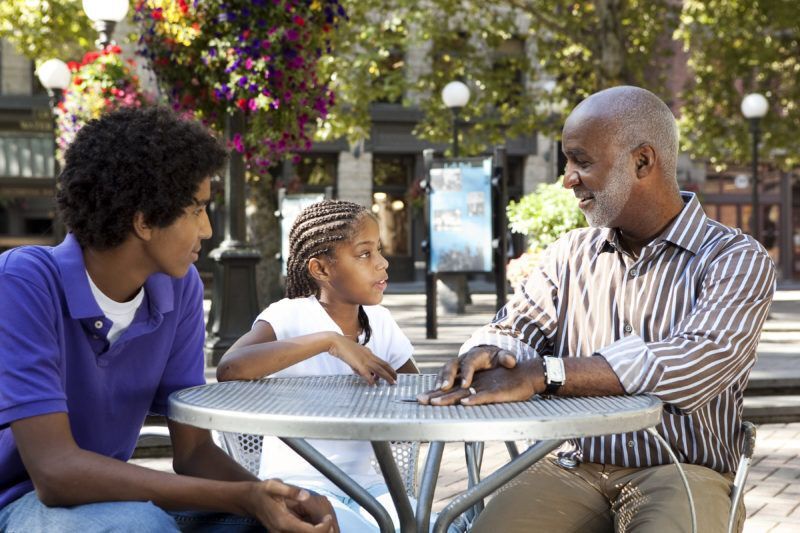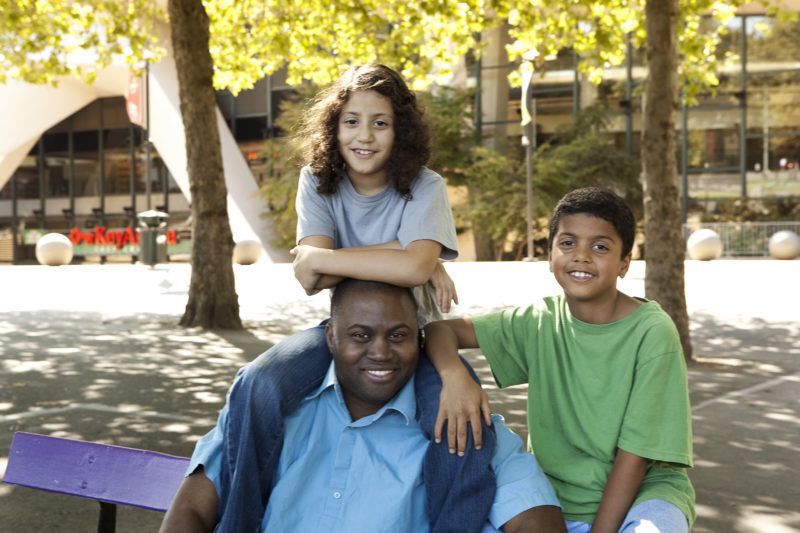-
This session will help participants understand how trauma-informed approaches can enhance their case management and advocacy efforts with youth clients in the court system. Participants will also apply trauma-informed approaches to common case management practices.
-
Join us as we recognize Child Abuse Prevention Month and the importance of supporting children and parents as they enter a recovery journey to reunite. Understanding the issues and concerns that addresses the needs and support for parents as they work toward a safe and heathy relationship with their recovery from substance misuse is vital to the role of CASA and the success of the work regardless of the ending outcome. One of the most challenging issues of a family recovery journey is the need to repair the parent-child relationship that was impacted during active substance use. We will explore the parenting issues often present in early recovery and strategies to support family. In addition, parenting in early recovery usually involves extended family or other caregivers who were the primary safe place for their child(ren). Join us and support healthy recovery for families and a safe environment for children.
-
This training program teaches adults how to prevent, recognize and react responsibly to child sexual abuse. It is designed for organizations that serve youth and for individuals concerned about the safety of children
-
As the substance use disorder (SUD’s) field addresses family involvement in SUD’s services, innovative and different approaches may be needed. Whether the outcome for a parent is a recovery journey, incarceration, or sadly, death, the families often feel grief and frustrated. Managing the next move can be difficult when working with children and family involved in the legal system. It is important that providers and families understand the grief and resilience process involved with moving past the chaos. The workshop will provide an awareness of the disorder and grief generated by a family members SUD’s. As a CASA worker, strategies of support and awareness of the underlying issues creates a supportive system for the children and their safety. A variety of strategies that assist families in moving forward will be explored.
-
This training is aimed to promote community responsibility to support families, rather than solely report families to DCFS. Keep this acronym in mind as you work with families.
LEAN (Listen, Empathize, Affirm and Non-judgement)
All of us can use the LEAN on Me approach to support families and prevent child abuse and neglect. -
“Parenting again,” whether in kinship care or as a grandfamily, the need for this role continues to increase as substance use issues create the need for a non-parent family member to assume responsibility for the safety and care of our children – babies through teens. Kin are placed in positions of grief, concern of the loved one, the child’s trauma, unexpected financial stress, legal issues and fear if the relationship is terminated. A snapshot of family caregivers will be provided from experience in working with kinship and child welfare staff. An understanding how kinship care impacts family structures and identified roles is important if working with intergenerational families. This will be important for the CASA volunteers and their relationship with both the children and the caregivers. Ideas will be offered for working with caregivers, thus helping with creating a safe and rewarding environment for children.
-
This training aims To deepen the understanding of the protective factors and how they relate to prevention of child abuse and neglect. We will also work to explore how those working with children and families can implement strategies that build the protective factors.
-
Come along with the Illinois Family Resource Center to explore the family dynamics and chaos they may be feeling when a loved one is experiencing substance use disorder (SUDs). The family, especially children, often struggle with their own fears, behaviors and a search for safety in response to the impact of living with or caring about a loved one with SUDs and mental health issues. “Tools” for responding to the issues that may be presented in the role of CASA will be shared. Explore resources and support for our families and our communities on their recovery journey.
-
Corrective thinking is a process that helps people identify and change their erroneous thought patterns and behaviors. It can help people face challenges with better choices and positive change. During this training we will discuss the different thinking traps and ways to respond to help the individual begin to make responsible decisions, thoughts, and behaviors.
-
Reports of childhood neglect account for 75% of all calls to the Child Abuse Hotline, and yet this topic is often misunderstood and hard to define. Childhood neglect can impact physical and mental health and lead to long-term problems, so join us as we learn more about this important topic. Participants will learn about the different types of neglect, risk factors and consequences of neglect on children, as well as protective factors and effective prevention strategies
-
Join our friends at Mercy Home for Boys and Girls for this powerful training. This session will provide a brief overview of trauma-informed principles that can guide caregivers in supporting children and youth who have been impacted by complex trauma. These principles include supporting caregiver regulation, cultivating positive relationships with children and teens and building effective responses to youth behavior. We will review the basic elements of each principle and apply them to a case example throughout the session.
-
This training will provide participants with effective engagement strategies that can be used to engage youth and families. The training will identify various strategies that can be done on an individual and an organizational level to increase the level of engagement between the professional and the client being served. This training will also challenge participants to identify barriers to engagement and identify strategies on how to overcome those barriers. The training discusses resistance as a part of engagement and how to overcome resistance. At the end of the training, participants will learn the concept of resiliency and begin to explore how they can begin building resiliency in the youth and families they are working with.
-
Understanding and Advocating for Children Impacted by Trauma and Hidden Disabilities (DEI)Join our friends at the Mercy Home for Boys and Girls for this extremely beneficial training on Understanding and Advocating for Children Impacted by Trauma and Hidden Disabilities (DEI)
-
This training will allow participants to gain a deeper understanding of how poverty often reinforces other issues such as exposure to violence, complex trauma, homelessness, and substance misuse and how living in poverty can impact the most vulnerable families in communities we serve.
-
Challenging Relationships with FoodIn this session, participants will explore how trauma can impact the food choices and habits of youth. Understanding the link between trauma and food preferences is crucial in providing effective support.
-
Messages Matter Implicit Bias, Personal Mindset and the Child Welfare SystemThis presentation focuses on Implicit Bias, Personal Mindset and the Child Welfare System. As a participant, you will consider the messages you learned about people and the interacting systems that shaped your internal wiring, and contributed to your decision making around safety, and wellbeing.
-
Heroes, Villains, and HealingSuperheroes can be used to help survivors understand the healing process. Using DC comic superheroes and villains, author and survivor of childhood sexual abuse explains the effects of hypervigilance, perfectionism, and cognitive behavior therapy in their connection to Superman, Batman, Wonder Woman, and strategies to help survivors begin the process of healing.
-
Defining and Recognizing Vicarious Trauma, Compassion Fatigue, and BurnoutThe Illinois Association of Court Appointed Special Advocates (IL CASA) gratefully acknowledges the U.S. Department of Justice, Office of Justice Programs, Office for Victims of Crime, for allowing us to reproduce, in whole, a series of 4 customized 90-minute virtual trainings on compassion fatigue, vicarious trauma, and burnout, the first of which is Defining and Recognizing Vicarious Trauma, Compassion Fatigue, and Burnout.
-
Defining and Recognizing Personal and Organizational ResilienceThe Illinois Association of Court Appointed Special Advocates (IL CASA) gratefully acknowledges the U.S. Department of Justice, Office of Justice Programs, Office for Victims of Crime, for allowing us to reproduce, in whole, a series of 4 customized 90-minute virtual trainings on compassion fatigue, vicarious trauma, and burnout, the third of which is Defining and Recognizing Personal and Organizational Resilience. This video was prepared by the Office for Victims of Crime.
Our impact this year has changed our community!
-
Children Served in FY25
9,907
-
Volunteer Hours in FY25
128,849
-
Volunteer Advocates in FY25
3,057
-
Number of New Children Served in FY25
2,893
Thank you to our generous sponsors:
-
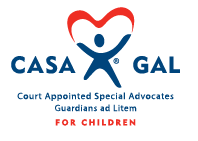 National CASA
National CASA -
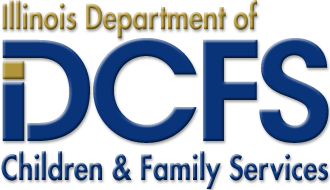 Illinois DCFS
Illinois DCFS -
 The Office of Illinois Courts
The Office of Illinois Courts -
 Illinois Attorney General
Illinois Attorney General

